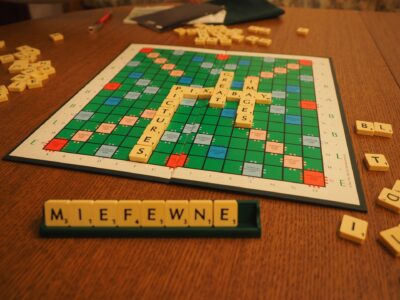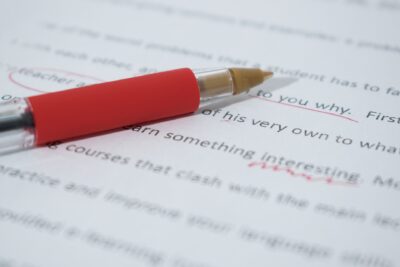
It’s one of the most common questions in the English language: how do you know when to use there, their, or they’re? Though it may seem like a simple thing, it can be important. Grammatical correctness is one of the first things a potential employer or professor will evaluate you on. Even the most incredible essay or cover letter can be dismissed over a simple mix-up.
There, their and they’re are homophones, meaning they sound the same but have different meanings. There are lots of different homophones in the English language, including ‘eye’ and ‘I’, ‘brake’ and ‘break’, and ‘heal’ and ‘heel.’ It’s very easy to get homophones mixed up, especially for kids or people learning English as a second language. Below, we’ll explain the different meanings and uses of there, their and they’re. Then, we’ll give you some tips on how to to remember when to use them, and exercises so you can practice your new skills.
How to Use There (With Examples)
‘There’ is used to identify the location of a person or thing. For instance, one might say, “We went to Ohio and stayed there for a week,” or “The professor was sitting over there.”
Keep in mind that ‘there’ is not just used to identify physical locations, but also as a more abstract marker. For instance, when someone gets an answer correct, you might say, “There you go!” Or when describing someone writing, you might say, “She wrote three pages and then stopped there.”
Cheat Sheet: When using the word ‘there’, remember ‘here’. Both words are used to mark locations, and are spelled very similarly.
How to Use Their (With Examples)
‘Their’ is the possessive form of ‘they’. In the same way that ‘his’ is used to attribute objects or things to ‘he’, ‘their’ is used to attribute objects or things to ‘they.’
For instance, one might say, “The group lost their shoes by the river,” or “The dogs ate their dinner in five seconds flat.” ‘Their’ can also be used as a singular possessive, especially for someone whose gender is indeterminate. For example, you might say, “The doctor saw their patients regularly,” or ‘The kid wore their shirt backwards to school.”
Cheat Sheet: When using the word ‘their,’ remember ‘I’. Both words mark possession and ownership.
How to Use They’re (With Examples)
‘They’re’ is a conjunction of the two words ‘they are’ or ‘they were.’ Any time you use the word ‘they’re,’ you should be able to substitute the words ‘they are’ or ‘they were’ in its place.
For example, you might say “They’re going to the park,” or “They said they’re not interested in buying any Halloween costumes.” It can also be used for objects, such as “They’re both interesting movies,” or “They’re not the greatest shoes I’ve ever seen.”
Cheat Sheet: When using ‘they’re’, remember ‘they are.’ Just substitute out ‘they’re’ for ‘they are’ to test your usage.
Practice Exercises For How to Use There Their They’re
Ultimately, the best way to make sure you’ve got the there, their, they’re distinction down is to practice using the three different words. You can start with our list of exercises. Test yourself by trying to plug the correct missing word into the blank. Then, once you’re done, check the answer key below to see how many you got correct.
- The girls drank ___ coffee in Starbucks, then went for a walk.
- They said ____ going on a trip to Thailand this fall.
- ____ daughter wants to go to Stanford.
- I saw a squirrel on the bench over ___.
- I heard ____ mom was sick.
- _____ really great at what they do.
- I wanted to go ___ on
- vacation.
- “Oh, ___ you are!” he said.
- _____ going to flip when they hear this.
- I don’t know who told them ____ cupcakes were bad.
Answer Key
1. Their. 2. They’re. 3. Their. 4. There. 5. Their. 6. They’re. 7. There. 8. There. 9. They’re. 10. Their.
Find more practice questions here.
Feedback
Was this blog post helpful for you? Do you still have questions about there, their and they’re, or do you have questions about other homophones or commonly mixed-up words? Let us know and we might be able to create a post about it!


